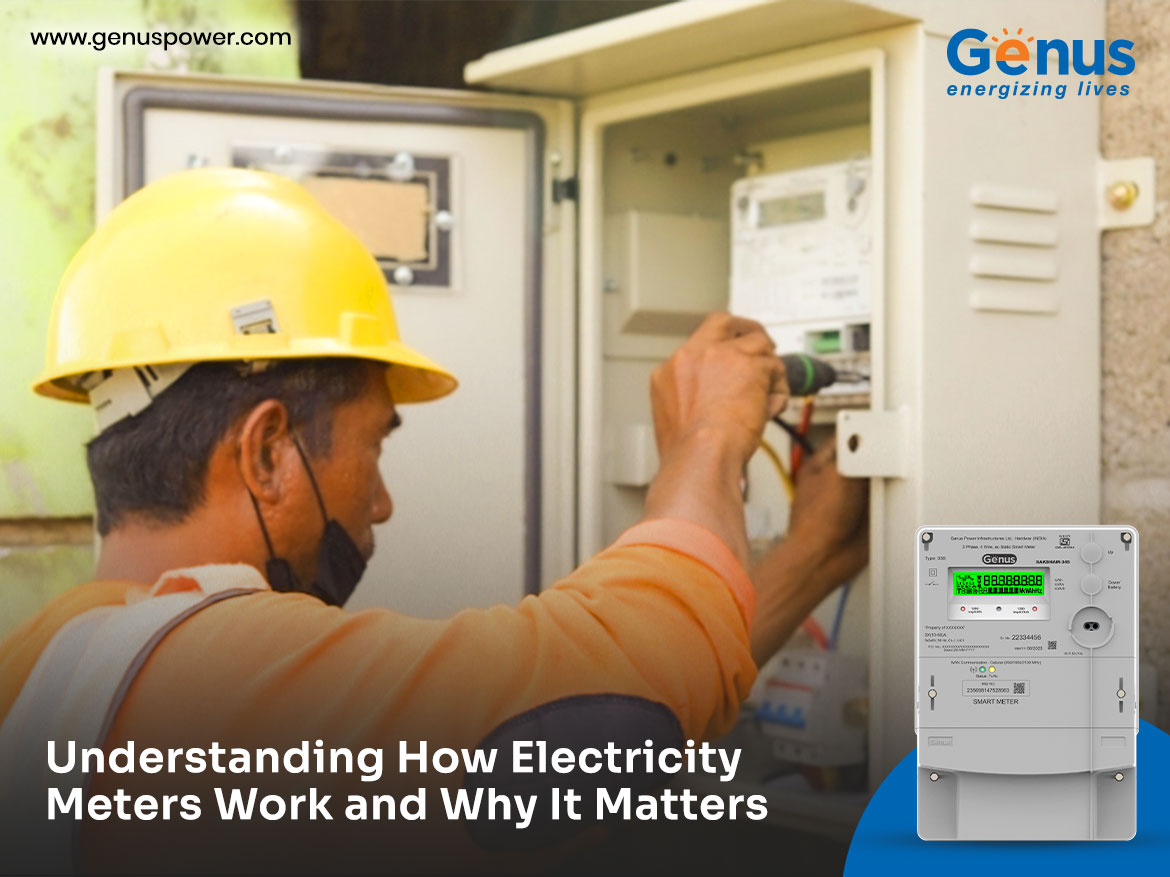
From lighting up our homes to powering several industries, the flow of meter electricity is a powerful force that drives our modern existence. At the core of this energy ecosystem lies a deceptively simple device: the electricity meter.
Electricity meters are an often overlooked but vital part of our daily lives used to measure our energy usage and also play a crucial role in managing our electricity bills and conserving energy.
Understanding how these devices work is not just a matter of technical curiosity but can help you with smarter energy usage and cost savings.
In this blog, we’ll dive into the details of how electricity meters function and why it’s important to understand them.
In simple words, an electricity meter is a device used to measure meters electricity and energy of power distribution system, acting as a crucial checkpoint between the utility provider and the consumer.
An electricity meter accurately measures and records the amount of electric energy consumed by a household, business, or any electrically powered entity. This measurement is typically expressed in kilowatt-hours (kWh).
Historically, electricity consumption was measured with mechanical metering devices that worked with spinning disks and dials. Thanks to technological advancements and evolving technologies, today, they come in various forms, from the basic digital meters to the highly advanced smart meters, offering efficiency and accuracy to your energy consumption.
One such example of a smart meter device is the genus meter, which is the key to managing your energy use and, consequently, your utility expenses.
Electricity meters come in various types, each with its unique features. The most common types consist of analog meters, which display usage units with a mechanical dial, and digital meters, which show readings on an LCD screen.
Smart meters are the latest innovation offering enhanced functionalities that include real-time usage data and remote communication capabilities to consumers.
Predominantly, there are two types: the single-phase meter and the 3 phase energy meter. Single-phase meters are commonly used in residential settings, while three-phase meters are often used in industrial or commercial settings.
Be it a household or a large-scale operation, both types of smart meters facilitate real-time monitoring and data transmission.
One key area where electricity meters play a crucial role is in distribution transformer metering. The energy meters are used to record energy usage and monitor the performance & efficiency of domestic, industry, and distribution transformers.
By tracking the flow of electricity through these distribution transformers, utilities can ensure efficient power distribution, identify areas for maintenance, and optimize the power supply to meet consumer demands.
With smart metering systems including “Genus Meter,” users can not only see their power consumption data on the meter’s display screen but also access detailed usage data through a connected app or online portal. This accessibility, in turn, empowers users to monitor their energy habits over time and make informed usage decisions accordingly.
For smart meters like the genus meter, the display will directly show your usage in kWh on an easy-to-read interface. Regularly reading the metering data either on display or mobile apps, can help you understand your usage and be more mindful about saving energy.
Understanding how your electricity meter works and being able to read it accurately is crucial for several reasons. Firstly, it empowers you to verify your utility bills, ensuring you’re charged correctly for the energy you consume.
Second, knowing how to read and understand your meter electricity usage can also help you monitor your consumption patterns, identify any unusual spikes in usage, and find ways to reduce your energy bills.
In addition to that, having an appropriate understanding of your energy meters can help you identify unusual inefficiencies or malfunctions in your electrical appliances. Essentially, a well-understood electricity meter is a tool for better energy management and cost savings.
Read More – IoT-Based Smart Energy Meters For Efficient Energy Management
In conclusion, understanding how electricity meters work is essential for effective energy management and cost control. As technology evolves, affordable three-phase and single-phase meter box price ranges have resulted to be a pivotal reason why more and more users are shifting to smart meters.
Today, it’s easier than ever to stay informed and in control of your electricity consumption. Let us be more responsible and proactive about how we use energy to build a more sustainable future for our children and grandchildren.We welcome inquiries from enterprises looking to upgrade their energy monitoring systems. Contact our Experts Now to explore how our advanced metering solutions can align with your strategic goals and boost your energy efficiency.